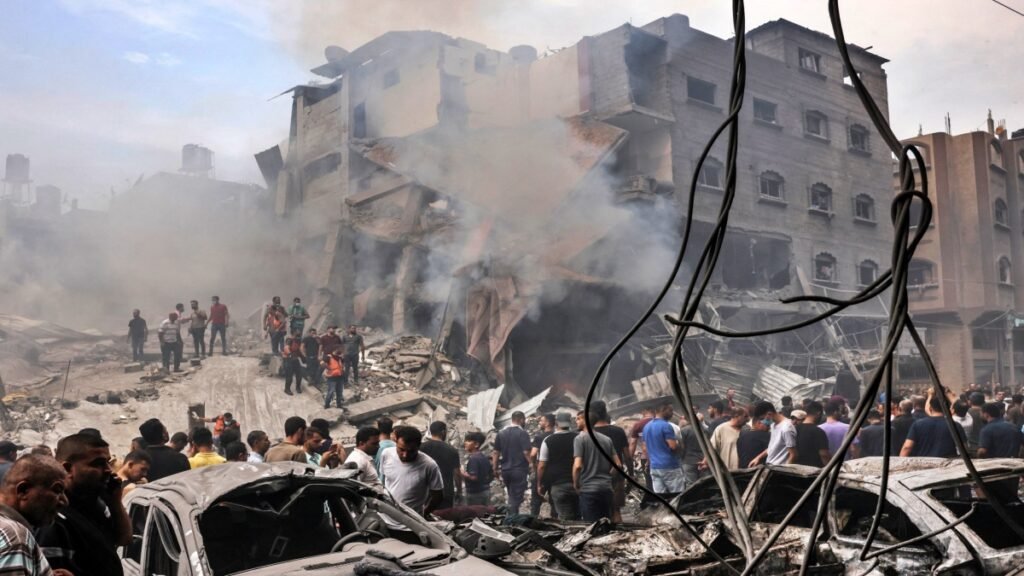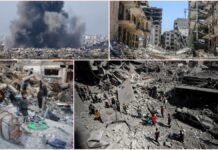
Tel Aviv: The World Health Organization (WHO) has issued a dire warning that the health system in Gaza is “on the brink of collapse” due to the ongoing Israeli blockade and the recent escalation of violence. The global health agency has urged Israel to allow immediate access to fuel and essential supplies for the besieged Palestinian enclave, where 2.2 million people are living under dire conditions.
According to WHO, hospitals in Gaza have been struggling to provide basic services and care for the wounded and sick amid severe shortages of electricity, water, medicine, and equipment. The agency said that hospitals have only a few hours of electricity each day and are relying on generators that are running out of fuel. It warned that if the situation does not improve soon, many life-saving operations and treatments will have to be halted, putting thousands of lives at risk.
“The health system in the Gaza Strip is collapsing,” WHO said in a statement on Thursday. “If fuel and life-saving health and humanitarian supplies cannot be delivered immediately to the Gaza Strip amid a complete blockade, time is running out to prevent a humanitarian disaster.”
The statement came a few days after Israel announced a complete closure of all crossings into Gaza, cutting off the supply of electricity, water, food, and fuel. Israel also banned the entry of humanitarian aid and personnel into the territory, which has been under its control since 1967.
Israel’s decision was in response to the unprecedented attack by Hamas, the Islamist militant group that rules Gaza, on October 7. Hamas launched hundreds of rockets and missiles at Israeli cities and towns, killing several civilians and injuring dozens more. Hamas also claimed to have captured several Israeli soldiers during the attack, which was the largest since the 1973 Yom Kippur War.
Israel retaliated with a massive aerial and ground assault on Gaza, targeting Hamas’s military infrastructure and leadership. The Israeli Defense Forces (IDF) said they killed dozens of Hamas fighters and destroyed hundreds of rocket launchers, tunnels, weapons depots, and command centers. The IDF also said they inflicted “severe damage” on Hamas’s ability to wage war.
However, the Israeli offensive also caused widespread devastation and suffering for the civilian population in Gaza, who have been living under a crippling blockade for more than 15 years. According to Palestinian sources, more than 200 people have been killed and over 1,000 injured in Gaza since October 7. Many buildings, roads, schools, hospitals, and mosques have been damaged or destroyed by Israeli airstrikes and artillery fire.
The international community has expressed alarm and concern over the humanitarian crisis in Gaza and has called for an immediate ceasefire and dialogue between Israel and Hamas. The United Nations, the European Union, the Arab League, Turkey, Iran, and other countries have condemned Israel’s blockade and use of excessive force against Gaza. They have also urged Israel to respect international law and human rights and to allow humanitarian access to Gaza.
However, Israel has rejected any criticism or pressure from the outside world and has insisted on its right to defend itself against Hamas’s aggression. Israel has also demanded that Hamas release the Israeli hostages as a precondition for any easing of the blockade or negotiation.

Israeli Energy Minister Israel Katz said on Thursday that Israel will not allow any humanitarian aid or basic resources into Gaza until Hamas frees the Israeli captives. He said that Israel will not tolerate any moral preaching from anyone who supports or sympathizes with Hamas.
“Humanitarian aid to Gaza? Until the Israeli hijackers return home, no light switch will be turned on, no water hydrant will be opened and no fuel truck will enter. Humanitarian for humanitarian. And no one will preach morality to us,” Katz wrote on ‘X’, a social media platform.




















































